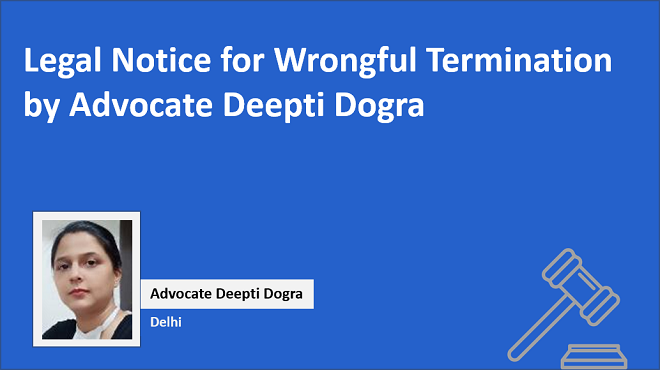Res Judicata ; Breakdown of the Doctrine
November 15, 2023 हिंदी में पढ़ेंTable of Contents
The break- down of the doctrine of Res-Judicata
The meaning of Res is Subject Matter, and the meaning of judicata is adjudged together meaning “ a matter adjudged” . In easier words, the thing has been concluded by the court. If the matter has already been settled by a court between the same parties, the same subject matter cannot be tried by another court. Hence, the court will put away or dismiss the lawsuit as another court has concluded it. The Doctrine of Res Judicata applies to both criminal and civil legal systems. There is no lawsuit directly or indirectly tried in a previous suit that can be tried once more.
Example of Res Judicata
& bull & lsquo X' sued & lsquo Y' as he didn't pay rent. & lsquo Y' requested the reducing the amount of rent on the foundation as the amount of the land was less than mentioned on the lease documents. The Courts concluded that the land was greater than shown in the lease. The land was excess and the doctrines of Res Judicata will not be applied.
& bull In a lawsuit, & lsquo X', the civil suit was filed in which the respondents requested that the Court put away or dismiss the civil suit with an appeal of Res Judicata. The Court declared that the doctrine of Res Judicata must be proved with the help of evidence. Due to Res Judicata, her claim was barred.
Pre-requisites for Res Judicata:
& bull A judicial decision by an experienced court or tribunal,
& bull Final and binding and
& bull Any decision made on the merits
& bull A fair hearing
& bull Previous decision correct or incorrect is not pertinent.
Nature and scope of Res Judicata
Res Judicata consists of two principles of claim preclusion and matter preclusion. Matter preclusion is also known as collateral estoppel. The litigants of the case do not have the right to sue each other one more time after the final judgment on the ground of merits. For example, if a plaintiff loses a lawsuit against the respondent in the lawsuit say A, he cannot sue the respondent again in lawsuit B based on the same facts and events. I should not exist in a different court with the same facts and events in a different court. Whereas in matter preclusion, it prohibits the re-litigation of matters of law that the judge has already determined as part of an earlier lawsuit.
The scope has been concluded in the lawsuit of Gulam Abbas v. State of Uttar Pradesh. In this lawsuit, the court incorporated the rules as evidence to appeal a matter already tried in an earlier lawsuit. Judgment of this lawsuit was difficult as the judges should apply Res Judicata. It was concluded that Res Judicata is not exhaustive and even if the matter is not directly covered under the provisions of the section, it will be considered a lawsuit of Res Judicata on general doctrines.
Doctrine of Res-Judicata
The doctrine of Res Judicata seeks to encourage the fair administration of justice and honesty and to prevent the law from being abused. The doctrine of Res Judicata is applicable when a litigant attempts to file a subsequent civil lawsuit on the same subject matter after receiving a judgment in a previous lawsuit wherein the parties are same and the subject matter as well. In many jurisdictions, this applies not only to the specific claims made in the first lawsuit but also to claims that could have been made during the same lawsuit. Section 11 of the Code of Civil Procedure Code incorporates the doctrine of Res Judicata also called the “ rule of conclusiveness of judgment” . The doctrine of Res Judicata was laid down as a principle in India in the lawsuit of Satyadhyan Ghosal v. Deorjin Debi. Judge Das Gupta, J. gave the judgment of the court and it was appealed by the landlords who attained a decree for ejectment against the tenants who were Deorajin Debi and her minor son. Still, they cannot get the possession in implementation soon after the judgment was made. Under Section 28 of the Calcutta Thika Tenancy, a petition was made by the tenant and alleged that they were the
Thika tenants. This petition was resisted by the landlords saying they were not Thika Tenants within the meaning of the Act. The people who were tenants moved to the High Court of Calcutta under the Civil Procedure Code. The court applied the doctrine of Res Judicata to achieve finality in litigation. The outcome came that the original court, as well as the higher court, can proceed with any future litigation on the basis that the previous decision was correct.
The doctrine of Res Judicata says & ndash
& bull No case should be tried twice for the same reason.
& bull State has the power to decide there should be an end to a litigation
& bull The decision of the court must be accepted as the correct decision.
Res Judicata landmark judgements
International
1. Lowe v. Haggerty
In the case of Lowe v. Haggerty, an important question was raised considering the effect of the former judgment on the respondent when the guest sued him. It was held that a suit was barred. There has not been the former record that disclosed what was in the first proceeding. It was decided by the court that it was not possible to determine what was the matter involved in the previous suit. The court disposed of the record made by the parties in a similar situation. Nonsuit was not granted in this lawsuit and the plaintiff's appeal was refused.
India
1. Daryao v. State of Uttar Pradesh
It was the decision of the court that the Doctrine of Res Judicata applies to a petition under Article 32 of the Constitution. If the petitioner files a petition in the High Court under Article 226 of the Constitution and it is put away or ismissed on the basis of the worth, it would be operated as Res Judicata to bar a similar petition in the Supreme Court under Article 32 of the Constitution.
Conclusion
The Doctrine of Res Judicata can be perceived as forbidding parties to shift the time back during the unresolved proceedings. This principle can be implemented in the exterior of the Code of Civil Procedure and covers many areas related to society and people. The ceiling of Res Judicata is vast and involves many things, including Public Interest Litigation. The reach has widened with the transit of time, and the Supreme Court has broadened the areas with its judgments.
Fill the form to get contact details of Advocate Kishan Dutt Kalaskar
These guides are not legal advice, nor a substitute for a lawyer
These articles are provided freely as general guides. While we do our best
to make sure these guides are helpful, we do not give any guarantee that
they are accurate or appropriate to your situation, or take any
responsibility for any loss their use might cause you. Do not rely on
information provided here without seeking experienced legal advice first. If
in doubt, please always consult a lawyer.
The internet is not a lawyer and neither are you.
Talk
to a real lawyer about your legal issue.

Comments by Users
No Comments! Be the first one to comment.
Related Articles
- Police Clearance Certificate for passport if criminal case pending
- How to file a case through lok adalat?
- How can I convert the panchayat approved land to a DTCP or CMDA
- Case was dismissed due to non appearance can I restore the case
- someone sending the legal notice i have not accepted what will happpen
- How to file a complaint in National Green Tribunal (NGT)? | Civil Law Guide
- Separation of powers in administrative law in India
- OBC Non Creamy Layer Income Limit 2019 Criteria
- punishment for false affidavit
- I got show cause notice from passport office please advise what to do
- What is the validity of an agreement on Rs 10 stamp paper
- What is the basic difference between Section / Rule / Article /Act
- What is the procedure and grounds for filing defamation case
- Have received court challan what to do.
- Police verification for govt job
- How to File Writ Petition?
Civil Law Articles
User Reviews
informative
good work
I want to know more about this law. Good work
very good article. Good writing
very informative. Can you tell more about this
nice work. Learned a lot. Thanks
can you share your helpline number
Very helpful in understanding the law.
it’s a very good article
nicely explained. Thanks fro the information
how to contact a lawyer?
thanks for the advice
thanks for the legal advice
needed some more information on the subject.
Gave me a very clear idea of the subject.
VIEW ALL


 641+ Lawyers are online
641+ Lawyers are online 








_.jpg)